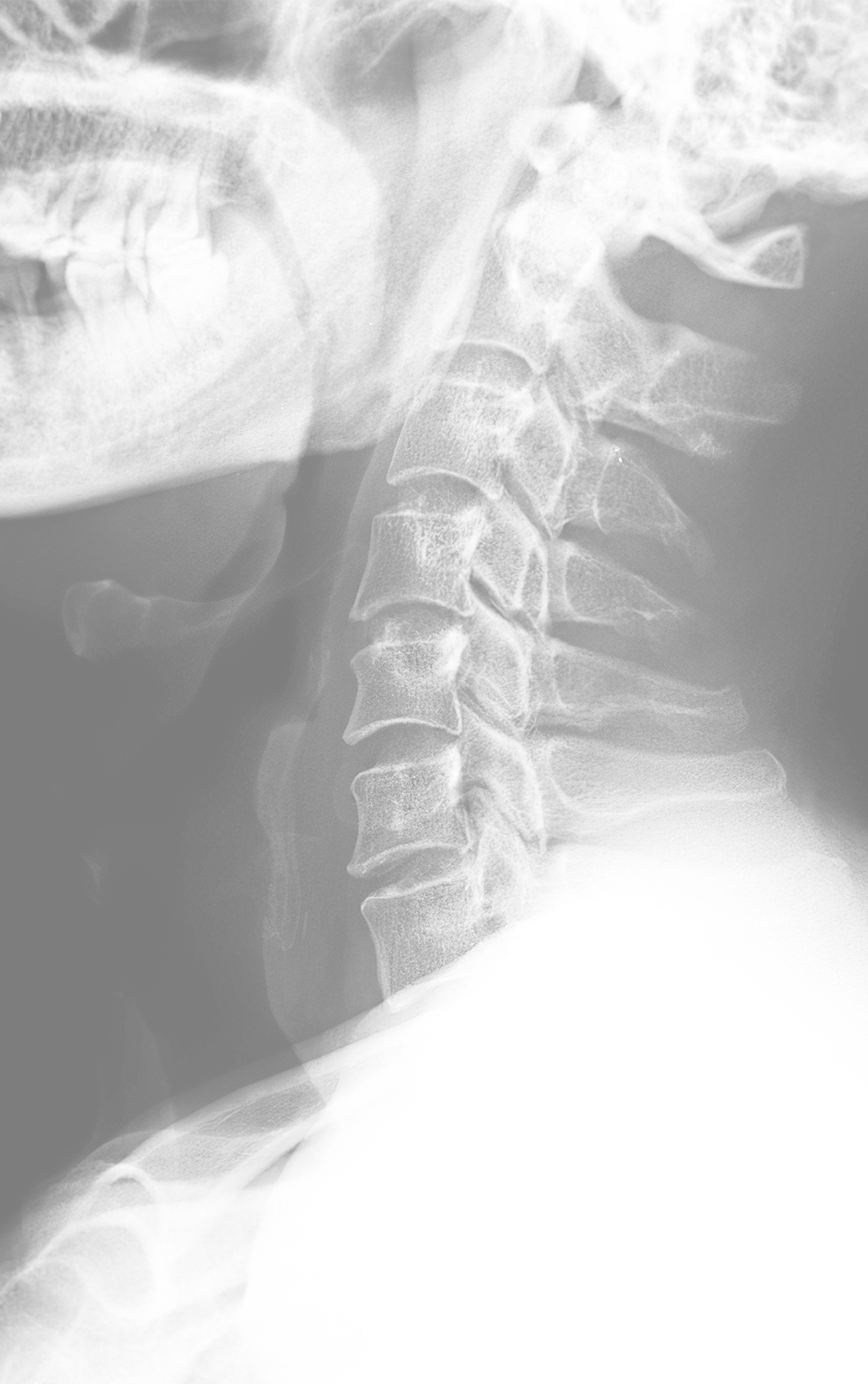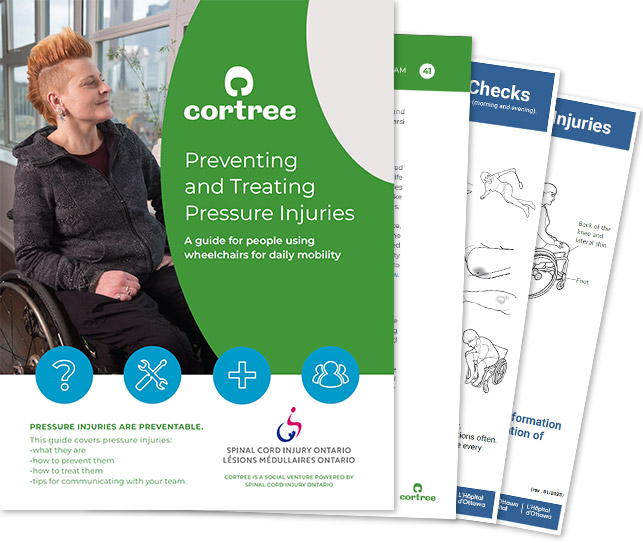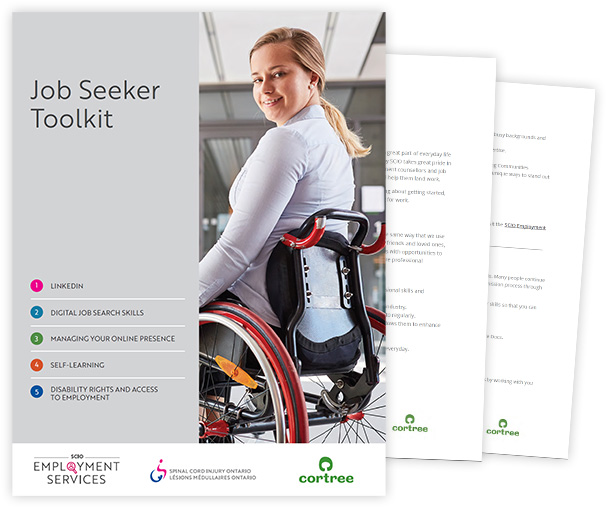
Chronic Neck Pain Relief
Let Cortree Help You Find Relief from Chronic Neck Pain
This Page Will Talk About:
If you have chronic pain, it’s important to know you don’t have to manage your pain alone. Almost one-in-five Canadians live with some form of chronic pain. This can be difficult to treat, and in some cases, may take a lot of trial-and-error to find a combination of strategies and treatments that can relieve symptoms like neck pain and headaches.
On this page, we’re going to discuss the definition of chronic pain, what constitutes chronic neck pain, some conditions that can cause neck pain, and a few beneficial neck pain treatments which you can consider in consultation with your health care team.
If you’d like to learn more about chronic pain relief, visit our page here for more information.

What is Chronic Pain?
Acute pain, which appears right after an injury and is related directly to soft tissue damage, typically arises quickly. It can be severe, but normally it lasts for a short period of time and has treatments that are relatively straightforward.
However, when pain becomes chronic (lasting more than six months), it changes the way that pain is experienced in the nervous system.
Our attention can amplify our awareness of physical symptoms and their intensity when we focus on them. This can be a good thing in the case of acute pain: we should pay attention to the sudden onset of strong physical symptoms.
With chronic pain, we may still experience strong physical symptoms, but paying attention to the symptoms doesn’t do anything to help the situation. In fact, the more we think strong physical symptoms are important and focus our attention on them, the more unpleasant we find them. This is why learning to notice and manage what you are thinking about can be so helpful when you are living with chronic pain.
What Conditions Can Cause Neck Pain?
Pain can come from any part of the body, including your muscles, skin, organs, joints and nerves.
There are a wide range of conditions that cause neck pain. Some of them can be the result of injuries, while others may result from genetics, or other underlying conditions of which neck pain is a symptom.
Some common conditions known to cause chronic neck pain include:
- Degenerative disc disease
- Whiplash
- Cervical radiculopathy (a pinched nerve)
- Herniated disc
- Spinal stenosis
- Osteoarthritis
- Neck strain
- Fibromyalgia
- Certain cancers
- Polymyalgia rheumatica
- Spinal cord injury

Finding Relief with Neck pain Exercises and Treatments
Pain is a personal experience. The only way to measure pain is to ask you about it. This can add to the feeling of isolation for people living with pain. It can seem like no one understands what you’re dealing with.
Learning to manage emotional well-being by recognizing symptoms and how they interact is an essential part of managing chronic pain.
Psychological therapies can play an important role in helping you manage chronic pain. There are several options you can try, including Cognitive Behavioural Therapy biofeedback, hypnosis, and meditation. Personal pain management strategies like relaxation and distraction can also play a role.
For muscle and joint pain, treatments like neck pain relief exercises, massage, physical therapy, and heat can be beneficial. Applying heat can loosen tense muscles and help reduce stiffness in your neck. Heat may also reduce pain by stimulating the sensory pathways that dampen pain signals. Heat should be used cautiously in areas of reduced sensation or sensitive skin to avoid burns. Hands-on physical therapy techniques that help mobilize soft tissue and joints can also help restore movement and reduce pain.
Regular exercise, aerobic and strength training, can help you stay healthy, reduce stress and improve your mood, all of which can improve your experience of pain. If you are not already exercising regularly it is a good idea to start small and gradually increase the length of time you are exercising, how often you are exercising, and how hard you are working. Everyone is different, so discussing your own situation and your plan with your health care team is a good place to start.
Acupuncture is a complementary and alternative medicine practice based on traditional Chinese medicine. Acupuncture is a treatment where small thin needles are inserted into specific points on the body to treat different symptoms and conditions. There is moderate research evidence that suggests acupuncture may be effective for treating neuropathic pain when performed by a trained practitioner.
It’s best to discuss treatment options with your health care team to find out more about what may work for you. Just remember to pace yourself and start with simple exercises that won’t strain you. Pushing yourself too hard, too quickly could make your neck pain worse.
Accessing Chronic Pain Clinics
It’s important for your doctor to understand your pain as much as possible. Usually, they’ll want to ask you questions about your pain, and perform an examination, as well as any additional tests they believe could be necessary.
While you may not be able to determine the specific reason for your chronic pain (often a reason won’t be found), it’s incredibly important for your doctor to perform this assessment. This information will allow them to develop a plan of action with you to improve your experience living with chronic pain.
In some cases, the doctor may refer you to a pain clinic. Also sometimes called pain management clinics, chronic pain clinics specialize in teaching you pain control techniques that you can apply to your daily routines.
They’re also able to help with any injections or medications that you may require assistance to administer.
There are a number of different clinics and self-management programs available across different regions. They each have different areas of focus and interdisciplinary teams with unique specializations.
Talk to your doctor about visiting a chronic pain clinic, if you believe this service could benefit your treatment plan.
If you’d like to learn more about chronic pain clinics, visit our page here for more information.
Accessing Cortree’s Helpful, Specialized Resources
Chronic pain can be difficult to manage, and even harder to cope with. At times you may be feeling discouraged and exhausted. You may not know where to find support and relief from chronic neck pain.
It may mean big changes in your life that won’t be easy and will take time, but Cortree can help.

